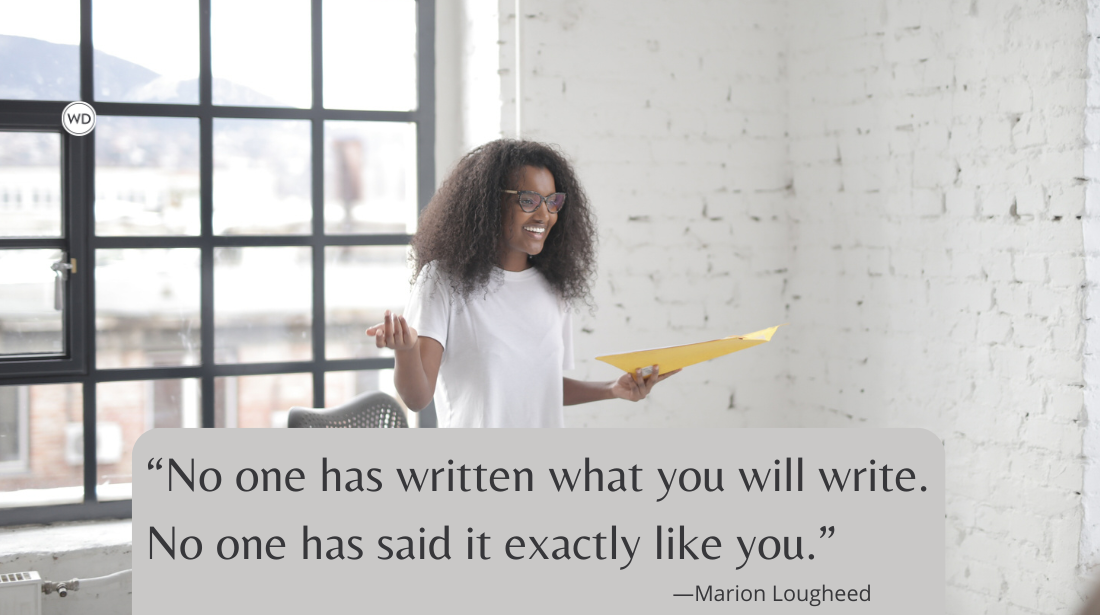Claudia Lux: On Writing Satirical Horror
Author Claudia Lux discusses the personal hell that led to her debut novel, Sign Here.
Claudia Lux is a graduate of Sarah Lawrence College, and has a master’s in social work from the University of Texas at Austin. She lives and works in Boston, Massachusetts. Sign Here is her first novel. Find her on Facebook and Instagram.
In this post, Claudia discusses the personal hell that led to her debut novel, Sign Here, how she fell in love with the editing process, and more!
Name: Claudia Lux
Literary agent: Lucy Cleland, Kneerim & Williams
Book title: Sign Here
Publisher: Berkley Penguin
Release date: October 25, 2022
Genre/category: Domestic Thriller/Satire/Horror
Elevator pitch for the book: A darkly humorous, surprisingly poignant, and utterly gripping debut novel about a guy who works in Hell (literally) and is on the cusp of a big promotion if only he can get one more member of the wealthy Harrison family to sell their soul.
IndieBound | Bookshop | Amazon
[WD uses affiliate links.]
What prompted you to write this book?
It all started with an insurance commercial. It was one of those ads that plays over and over during streamed shows: the same ad, three times in a row, every 10 minutes. When it booted up for the billionth time, I shouted, out loud to no one, “THIS IS HELL.” Then I started thinking about what hell would look like if it was just that: consistent discomfort and unpleasantness in place of fire and brimstone.
I asked friends—or anyone standing near me—what annoyances they had classified as such, and the responses ranged from what celebrities name their children (welcome, Peyote Trip) to multiple pens in a row not working (welcome, Peyote’s pen case). Soon I had a world to explore, and a character to explore it.
How long did it take to go from idea to publication? And did the idea change during the process?
I started writing Sign Here in the winter of 2018. At that time, I had already signed with my amazing agent, Lucy Cleland at Kneerim & Williams, and we were in the process of shopping around my first manuscript, which didn’t get picked up but got good feedback and taught me a lot about being a writer.
So, for Sign Here, I took what I had learned and edited the book on my own for two years. Prior to this, I had considered editing the “math” part of writing, and I am not a math person. I always knew the value of good editing—we’ve all heard writing is rewriting—but it was a slog. Editing is slow and tedious, and I was hooked on the rush of new pages.
Through those two years, however, I fell in love with the editing process. Sure, it still had me banging my head against my keyboard more often than not. But I came to appreciate the artistry in it: the dedication, the balance. It felt like I was taking care of these characters, of their story.
It helped me slow down, in both my writing and my life. I got the manuscript into my agent in the spring of 2021. She sent it to Penguin that Friday, and we got the call on Monday.
Were there any surprises or learning moments in the publishing process for this title?
It’s all been a learning experience! Every single step is new and crazy, and I keep asking people if I’m doing it right. Sometimes it feels like everyone learned a dance while I was out sick and today is the school recital. But even when it feels like that, it’s awesome.
I’m super lucky to have such an incredible team at Berkley. They hold my hand when I need it and cheer behind my wobbling bike when I don’t. I can’t imagine doing this process with anyone else.
I also have to give a huge shout out to copy editors! I absolutely loved the copy editor process for this book, mostly because now that I’m such a nerd for editing I loved learning the nuts and bolts, but the things they catch—the level of detail is amazing. Like there’s a scene in the book with a printer, and the copy editor caught that in one sentence it sounded like I was describing an ink jet printer, and in another a laser printer. (We fixed it!) I love stuff like that.
Also, due to the nature of the content, they had to reference UrbanDictionary.com a lot and that was pretty hilarious. Hopefully for them as much as for me!
Were there any surprises in the writing process for this book?
I’ve never been a story-board writer, or someone who plots ahead. I started writing Sign Here on the first page, knowing nothing but the broadest strokes: How I wanted hell to look, who I wanted Peyote to be, and how I wanted things to end for him. The rest filled in as I wrote.
I do like to mess with myself sometimes when I’m writing, though. For example, one night when I was wrapping up—I always wrote at night because I worked full-time—I got this kind of cheeky, mischievous feeling, like right before you challenge someone to eat a pepper you know is super-hot, and I typed: “Calamity Gannon, human name redacted, got her taste for blood the first time one of her brothers beat another to death in front of her.”
Prior to that sentence, I hadn’t really considered Cal’s background. I didn’t have any plans to go into it. But I wrote that insane sentence, and then pushed back from my desk, threw my hands up and said, “Good luck figuring that out tomorrow!” The whole next day, I was absolutely buzzing to get back to it, and now Cal’s background is some of my favorite content.
I like to do stuff like that, to keep myself on my toes, to keep it playful and fun. To challenge myself to write my way out.
What do you hope readers will get out of your book?
Since the book was chosen for Book of the Month for October, I’ve started getting all these messages from readers on social media, and it’s been wild. People taking photos of the book in these amazing “spooky season” set ups, sending me private messages about how they stayed up all night reading or how they are talking to their students about the book, one person even did Sign Here-inspired nail art!
It’s the absolute coolest and it’s totally blowing my mind. For me, when I really love a book, I walk away with a connection to a previously unknown world, lines that speak to a part of myself I couldn’t quite find the words for, and a story that I keep thinking about long after it’s over. I hope that my readers get something like that.
If you could share one piece of advice with other writers, what would it be?
My dad, poet Thomas Lux, called it “the sickness.” The need to write, no matter what. Even if it takes away from other, important parts of your life—like, say, sleep—or keeps you just a little bit removed from your most intense emotional experiences because you are on some level thinking, “How would I write this scene?”
If you have this sickness, if you live in words like this: Write. Even if you think no one will ever read it. Do it because you have to. Because it lights you all the way up.
Also, get (adopt!) a dog. They don’t judge you for talking to yourself.
Robert Lee Brewer is Senior Editor of Writer's Digest, which includes managing the content on WritersDigest.com and programming virtual conferences. He's the author of 40 Plot Twist Prompts for Writers: Writing Ideas for Bending Stories in New Directions, The Complete Guide of Poetic Forms: 100+ Poetic Form Definitions and Examples for Poets, Poem-a-Day: 365 Poetry Writing Prompts for a Year of Poeming, and more. Also, he's the editor of Writer's Market, Poet's Market, and Guide to Literary Agents. Follow him on Twitter @robertleebrewer.








